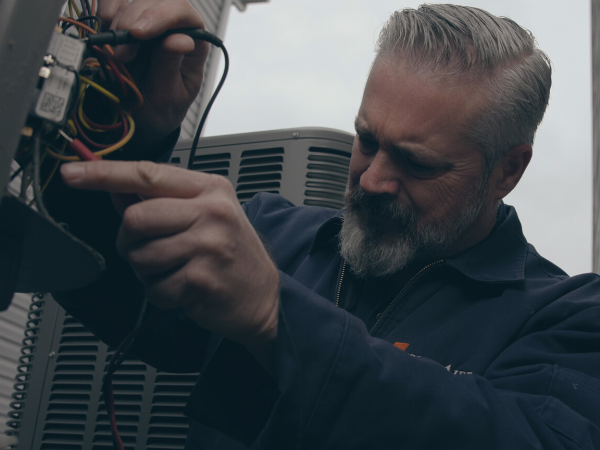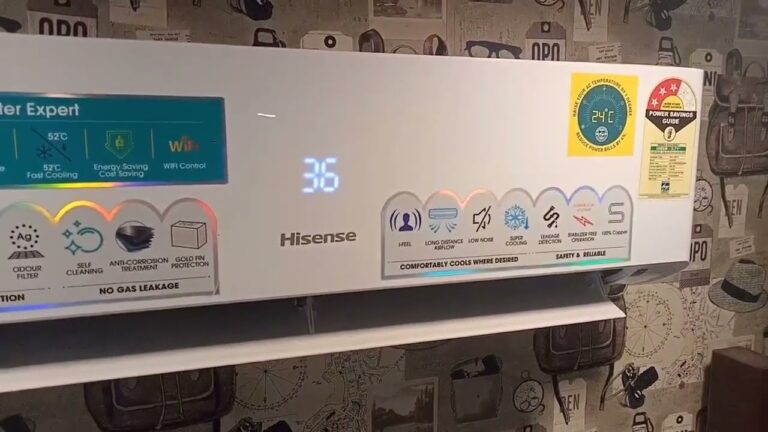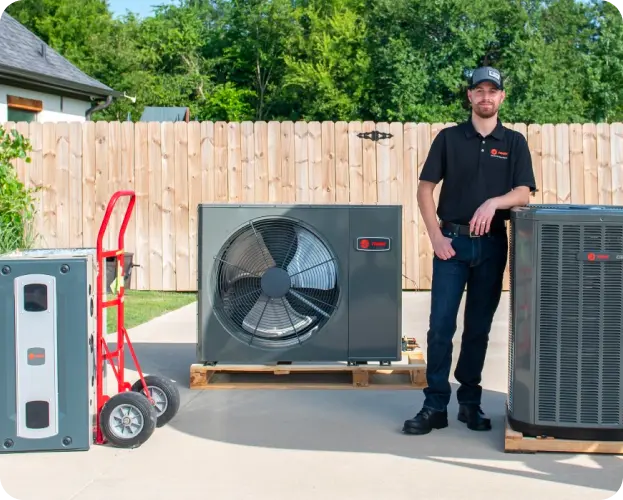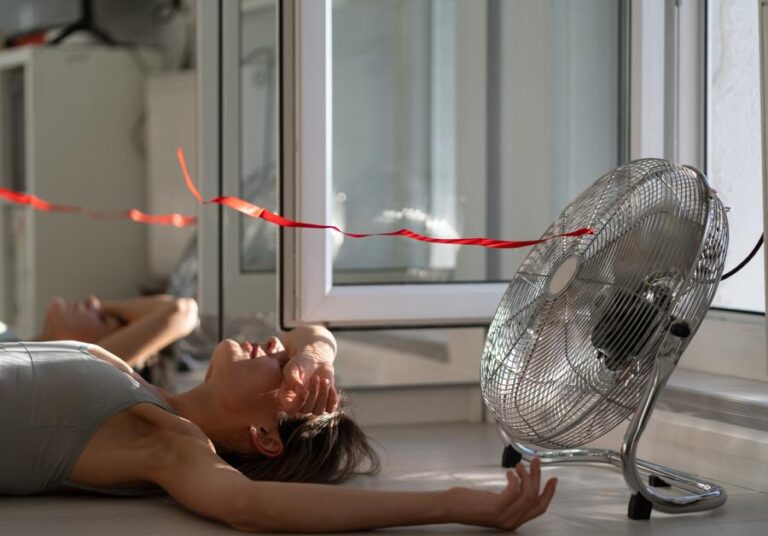How Do I Stop My Air Conditioner From Squeaking: Quick Fixes
To stop your air conditioner from squeaking, lubricate the motor and tighten any loose screws. Regular maintenance can prevent these issues.
Squeaky air conditioners can be frustrating, disrupting your peace and quiet. This noise usually indicates mechanical issues such as loose parts or a lack of lubrication. Addressing these problems promptly ensures a quieter and more efficient unit. Regular checks and maintenance can help identify and fix these issues before they become severe.
By taking these simple steps, you can enjoy a cooler, quieter home without the annoying squeaks. Proper care not only extends the life of your air conditioner but also improves its performance, saving you from costly repairs down the line.

Credit: www.youtube.com
Common Causes Of Squeaking
Many homeowners experience their air conditioner making squeaking noises. Understanding the common causes of squeaking can help you address the issue quickly.
Loose Parts
Loose parts are a frequent cause of squeaking noises in air conditioners. Over time, screws and bolts can become loose due to constant vibration.
- Check for loose screws and bolts.
- Tighten any loose components.
- Inspect the fan blades and motor mounts.
Regular maintenance can prevent loose parts from causing annoying squeaks.
Worn Out Belts
Worn out belts can also lead to squeaking sounds. Belts wear out over time and need replacing.
- Examine the condition of the belts.
- Replace worn or damaged belts.
- Ensure the belts are properly aligned.
Keeping belts in good condition is essential for a quiet air conditioner.
Safety Precautions
When attempting to stop your air conditioner from squeaking, safety is paramount. Taking the necessary safety precautions can prevent accidents and injuries. Follow these steps to ensure you handle the task safely and effectively.
Turn Off Power
First, you must turn off the power to your air conditioner. This step is crucial to avoid electric shocks.
- Locate the main power switch of your air conditioner.
- Switch it to the “Off” position.
- Ensure the unit is completely powered down before proceeding.
Use Protective Gear
Wearing protective gear can keep you safe while working on your air conditioner. Here’s a list of essential protective gear:
- Safety gloves to protect your hands.
- Goggles to shield your eyes from dust and debris.
- Face mask to avoid inhaling any particles.
Always remember, safety first. These precautions help you handle the task without harm.
Inspecting The Unit
Your air conditioner might be squeaking due to various reasons. One effective way to address this issue is by inspecting the unit. This process involves checking different components to identify the source of the noise. By doing so, you can take the necessary steps to fix the problem and ensure your air conditioner runs smoothly.
Check For Loose Screws
Loose screws can cause parts of the air conditioner to vibrate, leading to a squeaking noise. To check for loose screws, follow these steps:
- Turn off the air conditioner and unplug it.
- Use a screwdriver to tighten any visible screws.
- Check the screws on the panels and other components.
Make sure all screws are snug, but don’t over-tighten them. Over-tightening can strip the threads or damage the unit.
Examine Fan Blades
Fan blades can also be a source of squeaking noises. Follow these steps to examine the fan blades:
- Ensure the air conditioner is turned off and unplugged.
- Remove the front panel to access the fan blades.
- Inspect the blades for any damage or debris.
Clean the blades using a soft cloth if they are dirty. If you notice any damage, consider replacing the fan blades. Damaged blades can cause imbalance and squeaking.
Lubricating Moving Parts
Is your air conditioner making an annoying squeaking noise? Lubricating the moving parts can help reduce the noise. This simple maintenance task ensures your AC runs smoothly and quietly. Below, we provide some essential tips for choosing the right lubricant and how to apply it properly.
Choosing The Right Lubricant
Choosing the right lubricant is crucial for the proper functioning of your air conditioner. Use a non-detergent motor oil or specialized HVAC lubricant. Avoid using WD-40 as it is not designed for long-term lubrication.
| Lubricant Type | Use |
|---|---|
| Non-detergent Motor Oil | General lubrication of moving parts |
| Specialized HVAC Lubricant | Designed for air conditioning units |
Application Tips
Before you start, ensure the air conditioner is turned off. Follow these steps to apply the lubricant:
- Remove the air conditioner cover.
- Locate the moving parts like the fan motor.
- Apply a few drops of the chosen lubricant to each part.
- Move the parts manually to distribute the oil evenly.
- Replace the cover and turn the AC back on.
Regular lubrication can extend the life of your air conditioner. It also keeps it running quietly and efficiently.
Tightening Loose Components
Is your air conditioner making annoying squeaking noises? Often, these noises come from loose components. Tightening them can solve the problem quickly. Let’s explore how to do this efficiently.
Using The Right Tools
Before you start, gather the proper tools. You will need a screwdriver, pliers, and a wrench. Having the right tools makes the job easier and safer.
- Screwdriver – Useful for tightening screws.
- Pliers – Ideal for gripping and turning parts.
- Wrench – Perfect for bolts and nuts.
Securing Screws And Bolts
Loose screws and bolts often cause squeaking. First, locate the loose parts. Check the air conditioner’s panels and motor. Tighten all screws and bolts you find.
Use your screwdriver for screws. For bolts, use your wrench. Make sure to turn them clockwise. This action tightens them securely.
If a screw or bolt is missing, replace it immediately. Missing parts can lead to more noise and potential damage.

Credit: www.waychoffsac.com
Replacing Worn Out Belts
One common cause of a squeaking air conditioner is a worn-out belt. Replacing the belt can stop the noise. This guide will help you understand the process and steps.
Identifying Belt Wear
First, you need to check if the belt is worn out. Here’s how:
- Turn off and unplug the air conditioner.
- Open the unit to access the belt.
- Look for cracks, fraying, or looseness.
If you see any of these signs, the belt needs replacing.
Installing A New Belt
Follow these steps to install a new belt:
- Buy a new belt that fits your air conditioner model.
- Remove the old belt carefully.
- Check the pulley for any debris or damage.
- Install the new belt around the pulleys.
- Ensure the belt is tight and properly aligned.
After installation, plug in and turn on the unit. The squeaking should stop.
Cleaning The Air Conditioner
One way to stop your air conditioner from squeaking is by cleaning it. A clean air conditioner works better and makes less noise. Dust and debris can cause the squeaking sounds. Below, we will discuss how to clean your air conditioner.
Removing Dust And Debris
Removing dust and debris is the first step. Use a soft brush to clean the vents. Make sure the air conditioner is off before you start.
Next, remove the cover. Use a vacuum cleaner to clean inside. Pay attention to the corners. They can have a lot of dust.
After vacuuming, use a damp cloth. Wipe down all surfaces. This helps remove any remaining dust.
Cleaning Fan Blades
Cleaning the fan blades is important too. Dirty fan blades can cause squeaking.
First, locate the fan blades. They are usually behind the cover. Carefully remove the cover to access the blades.
Use a soft cloth to clean each blade. Make sure to wipe both sides. Use a gentle cleaner if needed. Avoid using too much water.
After cleaning, dry the blades completely. This prevents rust and other issues. Put the cover back on once everything is clean and dry.
Regular cleaning helps keep your air conditioner quiet and efficient.
When To Call A Professional
An air conditioner that squeaks can be annoying. Sometimes, fixing it yourself isn’t enough. You might need to call a professional. This section helps you know when it’s time to seek help.
Identifying Complex Issues
Some issues are easy to fix. Others are complex and need professional help. For example, if the squeaking noise doesn’t stop after simple fixes, it may be a bigger problem.
Electrical problems can cause squeaking too. These are dangerous to handle by yourself. It’s best to call a technician.
Another complex issue is a faulty compressor. This part is essential and tricky to repair. Only a professional can handle it safely.
Finding A Reliable Technician
Finding the right technician is crucial. Here are some tips:
- Check reviews online.
- Ask for recommendations from friends and family.
- Look for technicians with certifications.
A good technician will have positive feedback. They will also have the right skills and tools.
| Criteria | Importance |
|---|---|
| Certifications | High |
| Experience | Medium |
| Customer Reviews | High |
Always ask for a quote before hiring. Compare prices to ensure you get a fair deal.
By following these steps, you can stop your air conditioner from squeaking with professional help.

Credit: www.brmcginty.com
Frequently Asked Questions
Why Is My Ac Making A Squeaking Noise?
Your AC may squeak due to a loose or worn belt, motor issues, or a need for lubrication. Regular maintenance helps prevent these noises. Consult a professional if the problem persists.
Why Is My Ac Making A High Pitched Noise?
Your AC might be making a high-pitched noise due to a refrigerant leak, a faulty fan motor, or a compressor issue. Check for loose parts or debris. Regular maintenance helps prevent these problems.
How To Quiet A Noisy Air Conditioner Inside?
To quiet a noisy air conditioner inside, clean the filters, tighten loose parts, and ensure it’s level. Install soundproofing foam.
Conclusion
A squeaking air conditioner can be annoying and signal a problem. Regular maintenance is key to avoiding noise issues. Check for loose parts, clean components, and lubricate moving parts. If the squeak persists, consult a professional technician. Keep your air conditioner running smoothly for a more comfortable home environment.







